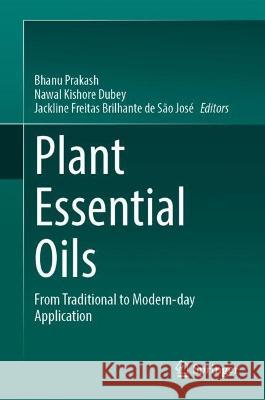Plant Essential Oils: From Traditional to Modern-Day Application » książka
topmenu
Plant Essential Oils: From Traditional to Modern-Day Application
ISBN-13: 9789819943692 / Angielski
Plant Essential Oils: From Traditional to Modern-Day Application
ISBN-13: 9789819943692 / Angielski
cena promocyjna 630,60
(netto: 600,57 VAT: 5%)
900,86
Rabat: -30%
Najniższa cena z 30 dni: 771,08
(netto: 600,57 VAT: 5%)
Rabat: -30%
Najniższa cena z 30 dni: 771,08
Termin realizacji zamówienia:
1-3 dni roboczych
1-3 dni roboczych
Darmowa dostawa!
Zobacz inne książki w promocji: Książki Springer Verlag z szybką wysyłką
Kategorie:
Kategorie BISAC:
Wydawca:
Springer
Język:
Angielski
ISBN-13:
9789819943692











